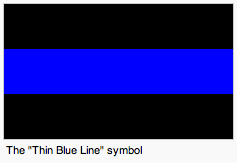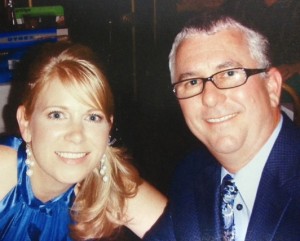
The thin blue line is a symbol of solidarity with law enforcement.
But sometimes, the thin blue line gets frayed.
My husband came home the other day with an interesting story. He was in a meeting with some of the management of his agency and the topic of PTSD came up. Sniggers and huffs floated above the table like a cloud of skepticism. Imagine. On that day, in that moment, the thin blue line unraveled a little.
Solidarity. Like-mindedness. Mutual support.
It is difficult to explain to those outside this law enforcement community what it’s actually like to live in the law enforcement community. I understand their uncertainty or blank stares when our children start pointing out other vehicles that are violating the law and deserving of a ticket. They have been indoctrinated into this code and so have I. It’s difficult for outsiders to understand. But what about insiders? What about the brotherhood?
Solidarity. Likemindedness. Mutual support.
When my husband shared this experience with me, the “Joan of Arc” in me started waving the war flag and crying out for followers. “Who will fight with me against this injustice?” It was difficult to believe that men and women within a law enforcement agency thought a claim of PTSD was a load of malarky.
Solidarity. Likemindedness. Mutual support.
When an officer is tragically lost in the line of duty, the brotherhood wears a black band around their badge to grieve and show their support. But what happens when a law enforcement brother comes forward and mentions PTSD? What happens when an officer raises her hand and asks for help? Unfortunately, sometimes, the thin blue line frays.
I’ve mentioned before that I don’t have any degrees or acronyms behind my name to offer any clinical credibility. Just my experience. But, my experience tells me that those who suffer from PTSD live under a menacing cloud. Images and smells and sounds are engraved into their memories and then set loose to haunt and torture.
The journey through the dark and murky waters of PTSD is a frightening and often lonely one. Even behind the thin blue line. My goal is not to become the poster family for PTSD. I’m not trying to wear the victim badge. In fact, my husband retires in less than two months and I would like to move on. But I believe in the thin blue line.
Solidarity. Likemindedness. Mutual support.
Maybe a family needs to hear they are not alone is this battle. Maybe an officer needs to be encouraged to raise his hand and say, “I need help.” Sometimes the thin blue line gets frayed. But we can fix it. All it takes is…
Solidarity. Likemindedness. Mutual support.








